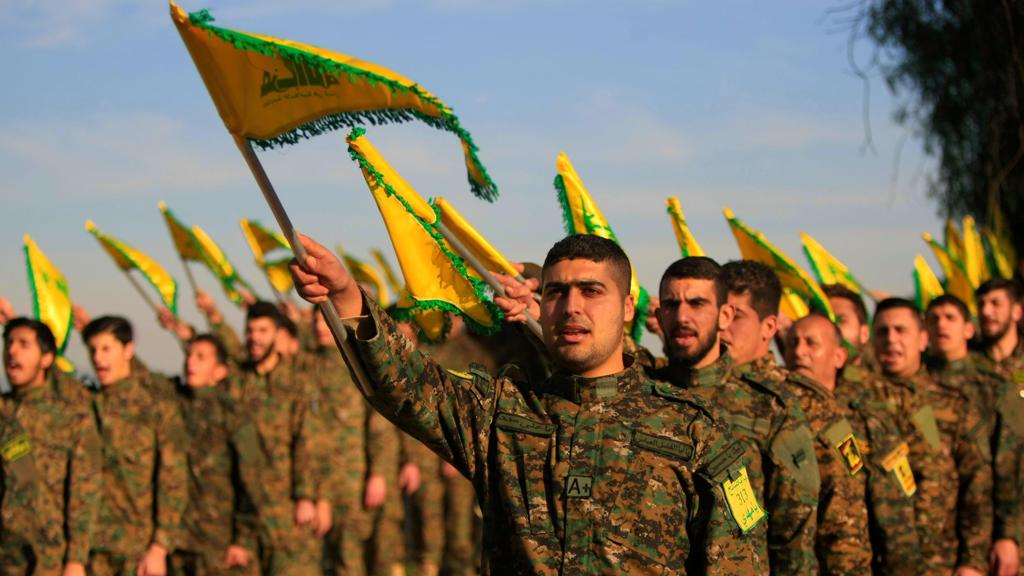One more brigade of Hezbollah fighters has been deployed in Aleppo.

Photo: TASS / AP / Mohammed Zaatari
The Hezbollah, a Lebanese Shia movement, has deployed another brigade of its fighters in Syria, the Izvestiya newspaper reported. According to the newspaper, the unit was sent to Aleppo, and after taking the city, it will participate in an offensive on Idlib, which is the main stronghold of the so-called ‘moderate’ opposition. Experts explain that units of the Lebanese allies are the main strike force of Bashar al-Assad, and an increase of their numbers means preparing for a new offensive.
According to retired Syrian Brigadier General Ali Maksud, the Hezbollah forces, relocated to Syria, will be a part of an upcoming large-scale operation to liberate areas, occupied by militants.
“Now, when the Syrian Army managed to strengthen the ring around the eastern districts of Aleppo and repel all attempts to break through the blockade, a powerful fist is creating for clearing the city and its surroundings, as well as for further development of the offensive on Idlib, which is one of the terrorists’ strongholds, primarily, of the Jabhat al-Nusra group,” Maksud told Izvestiya.
According to the newspaper, the Hezbollah has deployed not only a ‘heavy’ motorized rifle brigade, photos of which appeared in social networks several days ago, but also a ‘light’ brigade, equipped with military off-road vehicles, the so-called ‘jihad-mobiles’. Reportedly, the total number of reinforcements, arrived to Syria, can reach 5,000 people with tanks, armored fighting vehicles, infantry combat vehicles, artillery and other heavy military hardware. It is expected that these forces will take part in the final crushing of a group of militants, surrounded in Aleppo, and then will move deeper into the opposition-controlled areas.
Until recently, military experts estimated the total number of the Hezbollah forces in Syria as being between 7,000 and 10,000 people, now the contingent of the Lebanese allies will become about half as large again. Along with Iranian units, the number of which in Syria, according to military analysts, is about 13,000-16,000 fighters, detachments of Lebanese Shias form very powerful shock troops.
As an orientalist of the Higher School of Economics, Leonid Isaev, told Izvestiya, units of the Lebanese and Iranian allies constitute the main striking force of Assad’s troops. He noted that although the Syrian Army outnumbers contingents of the Hezbolla and Iranians, its fighting ability is poor.
The expert also added that the Syrian authorities have a strategy, according to which they want to maximally weaken the opposition, represented in Geneva. It should allow the Syrian government to sit down at the negotiating table with more suasible opponents.




After 5 years of war, how can the SAA’s fighting ability be poor? How can they be lacking in experience?? It makes no sense.
The notion the armies magically become better by fighting is largely a popular myth that ignores the psychology of fighting. The four reactions to threats are fighting, posturing, submission and flight. Very few people are instinctively inclined to option 1. Option 2 is actually what makes up the majority of ‘combat.’ Going into combat and doing poorly does not increase the chances of picking 1. Rather, it reinforces 2-4.
People who go into battle with good tactics, leadership and organisation to begin with are liable to make some improvement, as they develop confidence from their successes. People who go into combat with bad habits and organisations learn how to survive, not how to fight well. Learning how to shirk without getting caught, learning to posture from safety, those are the sorts of skills bad troops hone.
The armies and people of the middle east will see victory, if they continue to work together to take back their lands. They will have peace, and in the end, they will gain the strength and experience to maintain it!
Peace is too far fetched judging by past history of the middle east… computer says ‘no’. Humanity is too stubborn and selfish to live side by side while practicing different ethos.